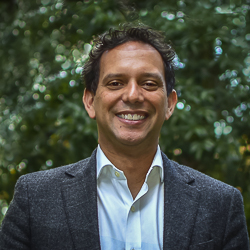Conserving native plants has always been a core value of APS. In the recent APS NSW survey, members expressed that they want us to increase our focus on conservation. So on the 16th March 2022, at our quarterly APS NSW gathering, Chris Gambian was invited to come and talk to the group about how APS NSW can be more effective in conservation efforts.

Chris Gambian is CEO of the Nature Conservation Council of NSW (NCC). NCC was formed in 1955 to fight for nature and is a collective of member groups, of which APS NSW is one. As Heather Miles (Chair APS NSW) said; nature doesn’t have a voice. So both as individuals and collectively as an organisation, we must be good citizens and advocate for it. NCC is there to collectivise on issues that member groups can’t tackle alone.
Chris began his talk, ‘Meeting the climate challenge, personal and collective action’ talking about his personal moment of realisation of the environmental impacts that his children will experience in their lifetime. He referenced the 2019/20 bushfires, and then the recent flood disasters that we have experienced. These disasters are consequences of an environment that has been created. Whilst the responsibility for this is often pushed down to individuals, and tends to lead to us taking actions like recycling and installing solar panels, individual actions are unfortunately a drop in the ocean in terms of the overall actions required to make a change. Systemic change is needed to address these large scale environmental issues.
Chris gave some examples to support his point. Nearly 50% of emissions in Australia come from energy generation; from burning fossil fuels. In NSW, 80% of our energy comes from burning coal. Just one power station (in this example, Vales Point) generates almost as much as ALL domestic air travel in Australia. So even if every Australian chose the ‘offset my travel’ option when they fly, this would still be just a tiny fraction compared to one power plant switching over to clean energy generation. That’s not to say we shouldn’t make these choices at an individual level, but that larger scale changes are required to make a significant difference.

Campaigning, including that done by NCC has influenced the NSW Government to put in place the Electricity Infrastructure Roadmap. This is a 32bn investment in clean energy infrastructure to incentivise further investment in clean energy. This is sending a signal to energy producers that the future is clean energy. This is having big impacts, for example the Tomago smelter in the Hunter generates a jaw dropping 4% of emissions in NSW. They are now on track to be off fossil fuels by 2029.
One of the main arguments and causes for resistance towards the change to clean energy is that the current coal fired plants closing will cause job losses. However, in a recent tender request for renewable energy projects in the Hunter, $100bn worth of projects were submitted. This would yield many more jobs than the coal industry in the Hunter currently provides.
Chris also spoke about the biodiversity crisis that we are experiencing. He told us the alarming facts that in NSW, one football field of bush is cleared every 7 minutes. In QLD, it’s one football field every 19 seconds. This is a result of policy settings, an example of which is laws allowing any rural property to clear 25 meters from a boundary line for fire protection. Regardless of whether that boundary line is anywhere near a property or in an asset protection zone. And often trees are on boundary lines on properties. An unfortunate result of this, because timber is becoming an increasingly valuable commodity, is that timber operators are approaching rural properties and encouraging land owners to take advantage of this option.
So, the most important question. What can we as individuals and also as members of APS do to be more effective in terms of conservation and the environment?
Chris said there are two things.
1- The expertise of members in APS is invaluable in helping to make submissions to government.
2- We all have connections with other groups in our communities. We should speak up and raise these issues and say that we don’t think enough is being done. We can ensure that we are using the strength in numbers to make the message known to our political representatives.
Chris told us about research in the USA which showed that it only takes 10 phone calls to a congress person to place enough pressure on them to take action. He says that calls are more important and effective than emails or signatures on petitions. So he suggested that you pick up the phone and call your local member with a clear and concise message that you want more to be done by our Government about environmental issues like climate change and the biodiversity crisis.
Chris also asked that we all have a look at the NCC website nature.org.au and sign up to their email news.
